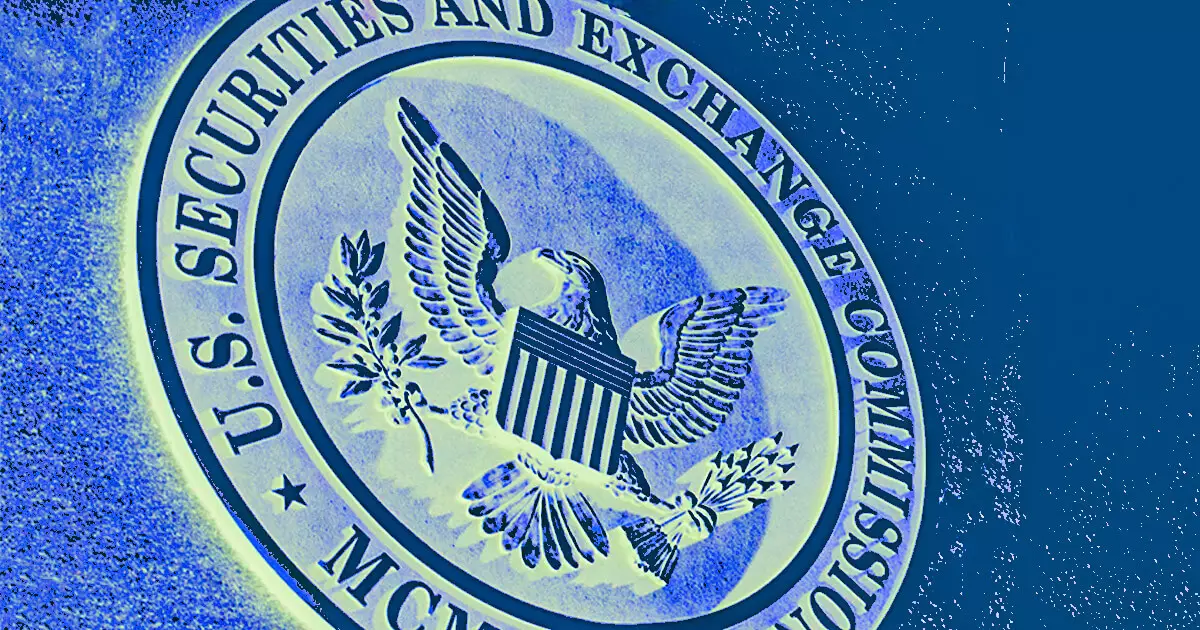The recent dispute surrounding the enforcement action taken by the Securities and Exchange Commission (SEC) against the Flyfish Club’s non-fungible token (NFT) collection raises significant questions about the application of securities law in the rapidly evolving landscape of digital assets. As regulators scramble to outline the parameters governing cryptocurrencies and NFTs, dissent from within the SEC signifies a need for clarity and an understanding of how innovative concepts like NFTs fit into traditional regulatory frameworks.
The Flyfish Club is an innovative dining establishment that has popularized the use of NFTs as a means of granting exclusive access to its members. By offering approximately 3,000 NFTs at prices ranging from $8,400 to $14,300, the club not only generated significant revenue—over $14.8 million initially and an additional $2.7 million through secondary sale royalties—but also sparked a debate about the classification of these digital tokens. In essence, each NFT serves not simply as a digital asset but as a ticket to extraordinary culinary experiences, which positions them closer to utility tokens rather than traditional securities.
The SEC’s decision to charge the Flyfish Club with conducting an unregistered offering of crypto asset securities stems from a broader effort to regulate digital asset sales. The enforcement action, which included a settlement involving a $750,000 civil penalty, was perceived as a necessary measure to protect consumers. However, SEC commissioners Hester Peirce and Mark Uyeda dissent from this view, contending that the enforcement action undermines trust in the very agency meant to provide oversight. They argue that treating NFT sales as securities not only misconstrues their intent but also stifles innovation and experimentation within the NFT space.
The Dissent: Rethinking the Howey Test
Peirce and Uyeda’s dissent rests heavily on their interpretation of the Howey Test, a legal standard used to determine whether certain transactions constitute securities offerings. They argue that Flyfish NFTs should not fall under this designation because their holders were primarily motivated by the attractive experiences promised—culinary tastings and exclusive access to the restaurant—rather than profit derived from the investment itself. By framing NFTs in this light, the commissioners advocate for a re-evaluation of how NFTs are classified, suggesting that the SEC should not apply traditional securities laws indiscriminately.
Implications for the NFT Ecosystem
The ramifications of the SEC’s recent actions extend beyond the Flyfish Club. The warning issued to NFT marketplace OpenSea, alongside the dissenting views of Peirce and Uyeda, indicates a broader unease within the crypto community regarding regulatory overreach. The establishment of initiatives like the Creator Defense Fund by organizations such as Stand With Crypto Alliance reflects a growing concern among artists and creators about their ability to operate in a landscape fraught with legal uncertainty. There is a palpable fear that heavy-handed regulations could suppress creativity and participation in the digital asset ecosystem.
As NFTs and digital assets continue to permeate various sectors, the need for a refined regulatory framework becomes increasingly critical. The dissent from within the SEC highlights the complexities and potential misinterpretations that could arise when enforcing outdated regulations in a novel context. Going forward, it is imperative that both regulators and creators find common ground—establishing rules that protect investors while encouraging innovation and creativity in the burgeoning world of digital assets. The future lies in open dialogue and collaboration, fostering an environment where art and technology can coexist without the looming threat of punitive action.

